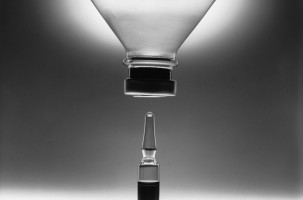
The Committee for Medicinal Products for Human Use (CHMP) of the European Medicines Agency (EMA) has recommended conditional marketing authorisation (CMA) for talquetamab as monotherapy for the treatment of adult patients with relapsed and refractory multiple myeloma (RRMM) who have received at least three prior therapies, including an immunomodulatory agent, a proteasome inhibitor, and an anti-CD38 antibody and have demonstrated disease progression on the last therapy.
Talquetamab is a subcutaneous bispecific antibody that binds G protein-coupled receptor class C group 5 member D (GPRC5D), a novel target on multiple myeloma cells, and CD3, on T-cells. The CHMP also recommended the approval of a Type II variation for teclistamab, providing a reduced, biweekly dosing schedule of 1.5mg/kg every other week in patients who have achieved a complete response or better for six months or longer. Teclistamab is the first bispecific antibody targeting B-cell maturation antigen (BCMA) on myeloma cells, and CD3 on T-cells to be licensed in Europe for the treatment of adult patients with RRMM who have had at least three prior therapies, including an immunomodulatory agent, a proteasome inhibitor, and an anti-CD38 antibody and have demonstrated disease progression on the last therapy.
Despite recent advances, multiple myeloma remains a highly heterogenous and incurable disease that is unique to every patient. As the disease progresses and with each successive line of treatment, responses tend to decrease and patient outcomes become progressively worse. An unmet need remains for more therapeutic options with different modes of action, including for patients treated with prior bispecific or CAR-T cell therapies, to better address the unique characteristics of every patient’s individual needs through different cellular targets.
“With talquetamab, a novel bispecific antibody targeting GPRC5D, we look to build on our legacy of innovation and bring forward a vital new treatment option for patients with relapsed and refractory multiple myeloma, who have a poor prognosis,” said Edmond Chan, MBChB M.D. (Res), Senior Director EMEA Therapeutic Area Lead Haematology, Janssen-Cilag Limited. “Today’s recommendation from the CHMP marks an exciting step for patients who continue to face the challenges of this difficult-to-treat blood cancer. We look forward to working with health authorities to bring talquetamab to patients in need across the region as soon as possible, while we continue our focus on enhancing a robust multiple myeloma portfolio of therapeutics and regimens.”
The CHMP recommendation for talquetamab is based on data from the Phase 1/2 MonumenTAL-1 study (Phase 1: NCT03399799; Phase 2: NCT04634552), evaluating the safety profile and efficacy of talquetamab in patients with RRMM. The latest data from the study were recently presented at the 2023 American Society of Clinical Oncology (ASCO) Annual Meeting (2-6 June, Chicago) and the 2023 European Hematology Association (EHA) Hybrid Congress (8-11 June, Frankfurt).
The CHMP recommendation for teclistamab is based on data from the Phase 1/2 MajesTEC-1 study (Phase 1: NCT03145181; Phase 2: NCT04557098), evaluating the safety profile and efficacy of teclistamab in patients with RRMM. Data from the study were recently presented at the 2023 ASCO Annual Meeting. “Pending approval, this variation for teclistamab will be an important step forward for this first BCMA bispecific therapy, offering flexible, less frequent dosing depending on a patient’s response,” said Sen Zhuang, M.D., Ph.D., Vice President, Clinical Research and Development, Janssen Research & Development, LLC. “Today's positive recommendations for talquetamab and teclistamab, two novel bispecific antibodies discovered and developed at Janssen, reinforce our commitment to delivering innovative treatment options for patients with multiple myeloma.”
Source: Janssen